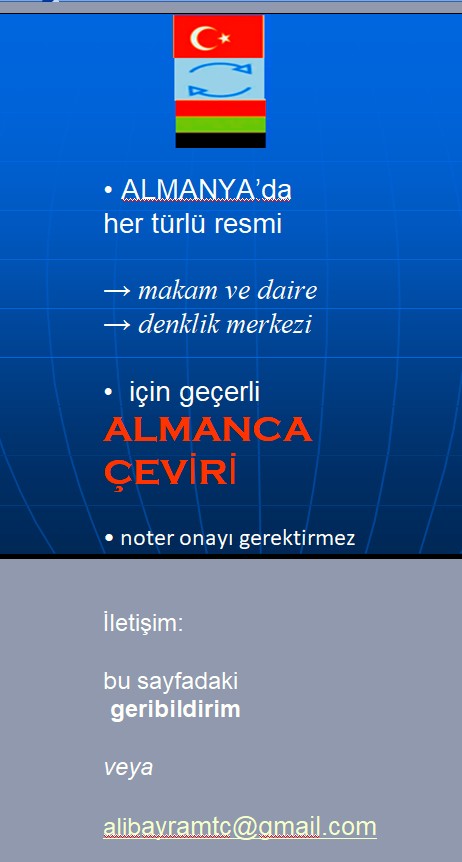dehydration
İngilizce - Türkçe
sıklık sırası: 17450ad / noun 1
ad / noun 2 – medical
ad / noun 3 – figurative
DEHYDRATION nedir = Bir maddenin içinden ya da yapısından su moleküllerinin çıkması. Örnek olarak alkoller su kaybederse koşullara göre alkenler ya da eterler oluşur. Alkollerden su çıkarmak için derişik sülfürik asit gibi güçlü bir su çekici maddenin yardımı gerekir. Buna karşın bir maddedeki su, salt bir hidrat biçiminde ya da emilmiş durumda ise o zaman silis jeli gibi bir adsorplayıcı ya da susuz kalsiyum klorür gibi nem çekerek sulanan maddeler yeterli olur. Isıtılan raflar üzerine serilmiş katilar içinden kuru hava akımı geçirilerek suyun buharlaşması yolu ile o maddenin fiziksel bağlı nemini kaybetmesi, yani kuruması sağlanabilir. Gazlar sıvılaştırılmadan önce, basınç altında soğutularak içindeki suyun yoğunlaşması sağlanır. Su kaybeden besinler ise daha uzun süre saklanabilir. Kurutulmuş besinler uzun süre bo zunmadıkları gibi hacimleri de küçüldüğü için daha kolay depolanabilir. Süt (ya da yumurta) sıcak hava akımı içine püskürtüldüğü zaman su kaydederek süttozu (ya da yumurta tozu) biçimini alır. Çağımızda Kuru Soğutma yani donmuş besinlerdeki buz kristallerini düşük basınç altında süblimleştirme, besinin dokusunu ve lezzetini korur. Bir fizyoloji olayı olarak vücut çeşitli nedenlerle su kaybedebilir. Bunlar arasında ishal, kolera gibi hastalıklar ya da kusma ve aşırı terleme sayılabilir.
DEHYDRATION
Severe Dehydration: A medical condition in which the body loses an excessive amount of fluids, leading to various health problems.
Dehydration Warning Signs: Indicators or symptoms that suggest a person is becoming dehydrated.
Fluid Depletion: The process of losing essential bodily fluids, often due to illness or excessive sweating.
Hydration Levels: The amount of water or fluids in one's body, which is crucial for overall health.
Dehydration Prevention: Strategies and actions to avoid becoming dehydrated.
Thirst Quencher: A drink or solution that helps satisfy one's thirst and combat dehydration.
Water Intake: The amount of water or liquids consumed by an individual.
Dry Mouth: A symptom of dehydration characterized by a parched or lack of moisture in the mouth.
Hydrate Your Body: To supply your body with the necessary fluids to maintain proper hydration.
Electrolyte Imbalance: A condition resulting from dehydration, where the balance of electrolytes in the body is disrupted.
Dehydration Dangers: The potential risks and health problems associated with not drinking enough water.
Rehydration Process: The act of replenishing fluids in the body to reverse dehydration.
Fluid Replacement: The practice of consuming liquids to compensate for fluid loss.
Dehydration Headache: A type of headache caused by a lack of hydration.
Heat-Induced Dehydration: The state of being dehydrated due to exposure to high temperatures or intense physical activity.
Thirsty as a Desert: An idiom used to describe extreme thirst, often linked to dehydration.
Mouth Like a Desert: A colloquial expression used to describe a very dry mouth, a symptom of dehydration.
Run Out of Water: To exhaust your water supply, possibly leading to dehydration.
Parched Lips: Dry and cracked lips resulting from dehydration.
Dehydration Recovery: The process of returning to a hydrated state after experiencing dehydration.
Dehydration Fatigue: Extreme tiredness or exhaustion due to dehydration.
Dried Up: An informal expression used to describe a person or thing that is severely dehydrated or lacking vitality.
Dehydration Emergency: A critical situation when a person requires immediate attention and rehydration.
Sweat it Out: An idiom for the act of sweating heavily, often leading to dehydration.
Dehydrated Skin: Dry, flaky, or tight-feeling skin due to a lack of moisture.
Thirsty Work: An expression used to describe tasks or activities that make you very thirsty and may lead to dehydration.
Dehydration Risk Factors: Conditions or behaviors that increase the likelihood of becoming dehydrated.
Body's Fluid Balance: The equilibrium between fluid intake and loss in the body, critical for proper hydration.
Dehydration Awareness: Being conscious of the importance of staying hydrated.
Droplets of Sweat: Tiny beads of sweat that appear on the skin when dehydrated.
Fluid Retention: The ability of the body to hold onto water to maintain proper hydration.
Dry Spell: A period of time characterized by a lack of rainfall, often used figuratively to describe a lack of hydration.
Dehydration Solutions: Methods or products designed to combat dehydration.
Thirst is Real: An informal phrase expressing genuine thirst, often related to dehydration.
Sweltering Heat: Extremely hot weather conditions that can contribute to dehydration.
Quench Your Thirst: To satisfy your need for fluids and alleviate dehydration.
Dehydration Consequences: The negative outcomes and effects of not addressing dehydration.
Water Balance: Maintaining a proper ratio of water intake and output to prevent dehydration.
Hydrate or Die-drate: A humorous saying emphasizing the importance of staying hydrated to avoid the risks of dehydration.
Dry as a Bone: An idiom describing something or someone that is extremely dry, like a dehydrated person.
Fluid Loss: The reduction of bodily fluids due to factors like sweating, illness, or inadequate intake.
Drink Like a Fish: An idiom suggesting heavy drinking, often related to the need for rehydration.
Dehydration Symptoms: Signs and physical manifestations of a lack of hydration.
Desert-Like Conditions: A description of a place or situation that is very dry, similar to the effects of dehydration.
Drought in the Body: A metaphorical expression for a severe lack of bodily fluids and hydration.
Stay Hydrated on the Go: To maintain proper hydration even while traveling or in motion.
Dehydration Contributes to Health Issues: How a lack of hydration can worsen or lead to various health problems.
Drink Up: An exhortation to consume more fluids, especially when at risk of dehydration.
Dehydration Relief: The act of alleviating the discomfort and issues associated with dehydration.
Hydrate and Regenerate: The process of replenishing fluids to rejuvenate the body and combat dehydration.
ilgili sözler / related words


